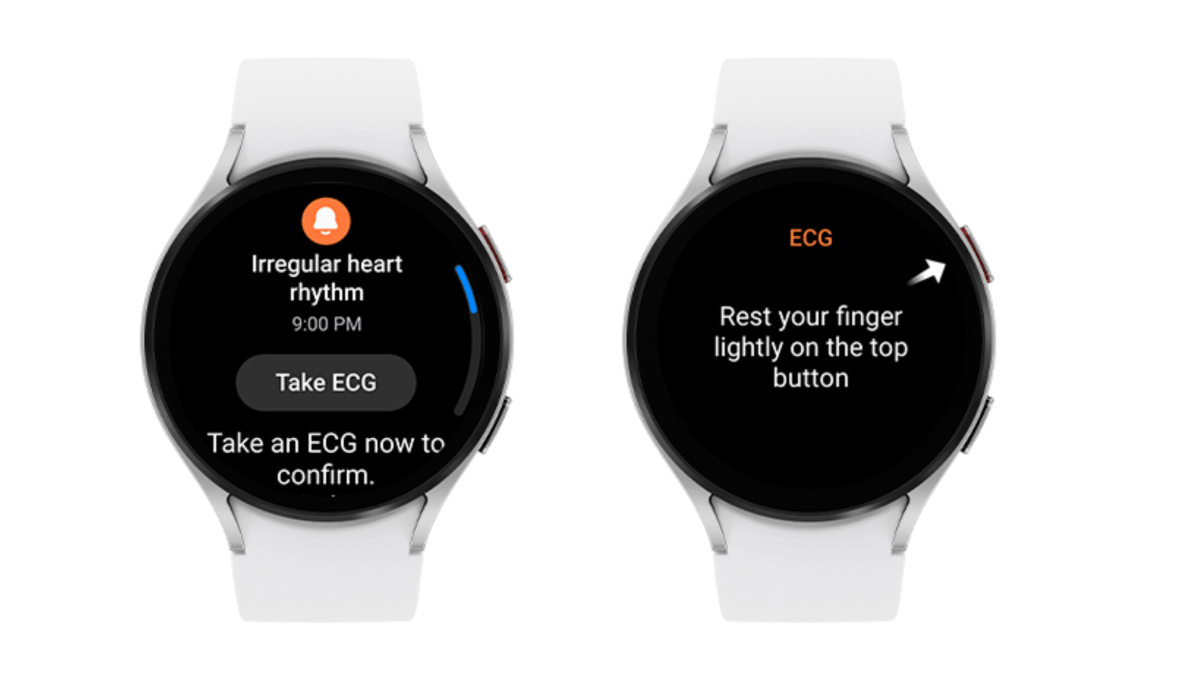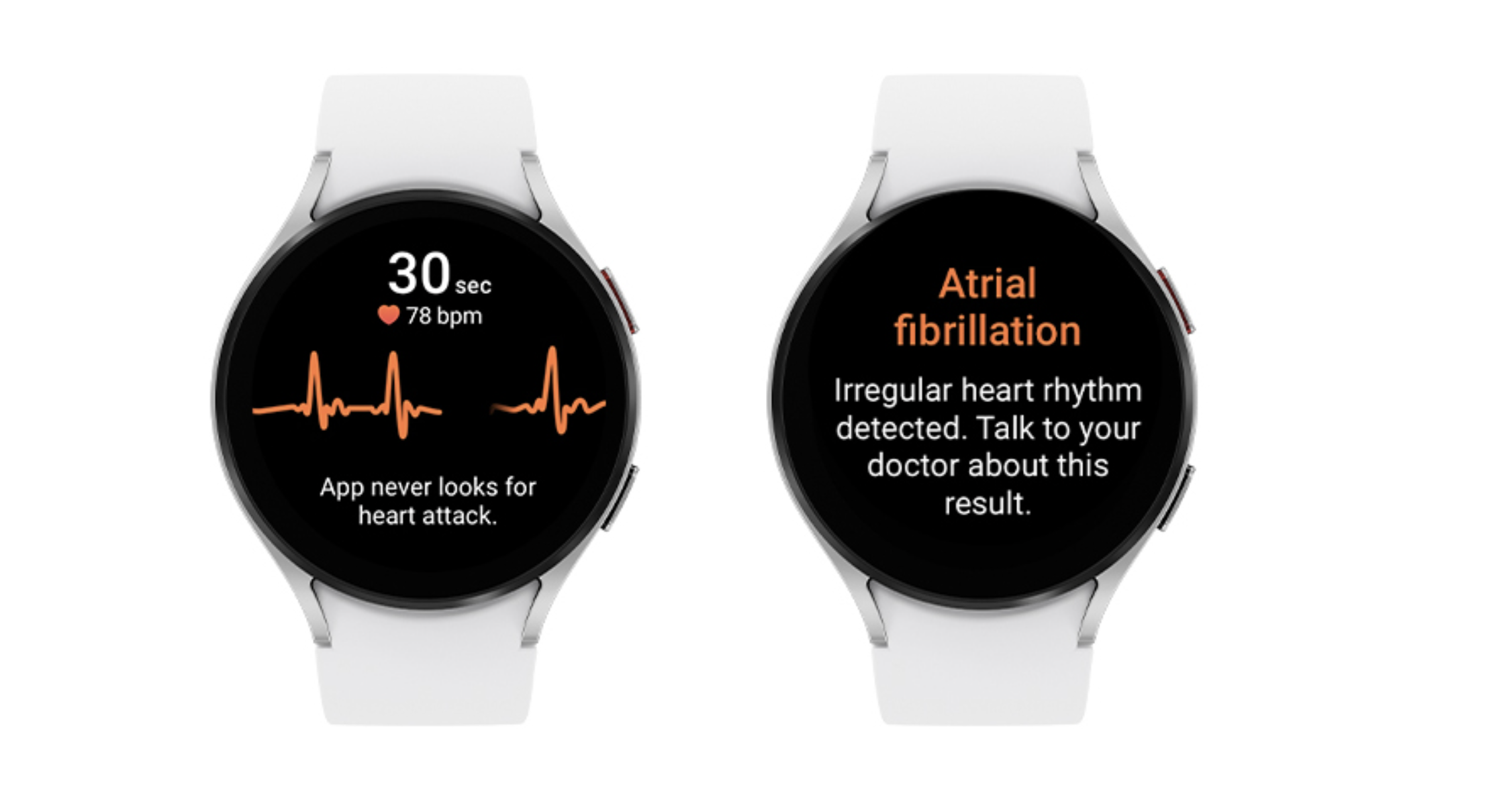

Samsung announced today that its Irregular Heart Rhythm Notification feature for the Galaxy Watch has received FDA clearance. Together with the Galaxy Watch’s Electrocardiogram (ECG) function, the Irregular Heart Rhythm Notification feature monitors heart rhythms suggestive of atrial fibrillation.
Once the feature is activated in the Samsung Health Monitor app, it will check for irregular heart rhythms in the background via Galaxy Watch’s BioActive Sensor. If a certain number of consecutive measurements are irregular, the smartwatch will warn its user of potential AFib activity, prompting them to take an ECG using their watch for a more accurate measurement.

Image Credits: Samsung
The Irregular Heart Rhythm Notification feature will be available as part of the newly announced One UI 5 Watch, coming first to the upcoming Galaxy Watch devices later this year, and later expanding to previous editions. In comparison, Apple’s smartwatches have offered an irregular rhythm notification feature since 2018.
“We’re excited to announce that Irregular Heart Rhythm Notification, designed to help millions of people around the world who may not be aware of a potential heart risk, has been cleared by the FDA,” said Hon Pak, vice president and head of the Digital Health Team at Samsung Electronics, in a press release. “This is yet another example of how Samsung prioritizes proactive safety solutions and enables users to receive a more holistic understanding of their cardiovascular and overall health.”
Samsung notes that the feature is not intended to provide a notification on every episode of irregular rhythm suggestive of AFib. The tech giant also explains that the absence of a notification is not intended to indicate no disease process is present. The feature is not intended for users with other known arrhythmias or users under 22 years old.
The Irregular Heart Rhythm Notification feature will join the Galaxy Watch’s current health features that use its BioActive Sensor, including the on-demand ECG recording and HR Alert function that detects abnormally high or low heart rates.






